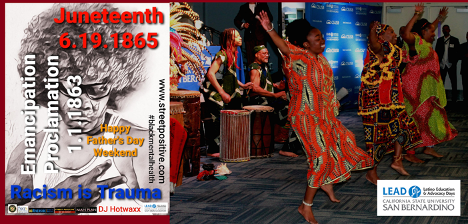Watch Tabula Rasa/College Bound Video Compilation, LEAD Novelas Eductivas:
Watch FNX Video of our 7th annual Latino Education & Advocacy Days (LEAD) Summit, which highlighted Black, Brown, and Indigenous unity:
Origins of Race in the US:
Race, and its ideology of racism arise principally from two related historical processes.
- taking land from and destroying indigenous peoples, and;
- enslaving Africans to work that land.
The images, characterizations, components, and classifications of race rationalized the conditions of genocide and enslavement.
Early Interactions:
- Europeans first enslaved Native peoples, introducing Africans to the Americas shortly after.
- Nicolas de Ovando, Governor of Hispaniola first mentioned African and Native interaction in a report, circa 1503. Natives who escaped generally knew the surrounding areas, were able to avoid capture; but then returned to help free enslaved Africans. Europeans feared a Native/African alliance.
- The first slave rebellion occurred in Hispaniola in 1522, while the first on future United States soil (North Carolina) occurred in 1526. Both rebellions were organized and executed by coalitions of Africans and Native Americans.
So, from the beginning, American Native populations and Africans have shared a historical relationship whose liberation have been intertwined.
Not one case of extradition or deportation of runaway African slaves in the early history of Mexico!
- Early Mexican governments abhorred any form of slavery, thereby had given sanctuary to runaway slaves/African fugitives fleeing from the United States.
- It was in this trajectory that Mexico’s commitment to harbor Black fugitive slaves triggered the Mexican American war; which Mexico lost nearly 50 percent of her territory.
- After the war, Mexico undeterred, included in her constitution and continued her commitment to harbor fugitive slaves.

Shift towards the Supralocal or Transcommunal:
- Historically, African Americans since the 1800’s, have consistently expressed Pan-Africanism, anti-imperialism, and expressions of solidarity with a pantheon of Latin America’s greatest freedom fighters including Simon Bolivar, Vicente Guerrero, José María Morelos, José Martí, Antonio Maceo, and Augusto Sandino—among many others.
- It is critical to recognize the legacy of conquest, annexation of ancestral lands, and the prolonged subjugation of native cultures, along with an ongoing history of racial discrimination, socio–?economic marginalization, or draconian immigration practices

 Westside Story Newspaper – Online The News of The Empire – Sharing the Quest for Excellence
Westside Story Newspaper – Online The News of The Empire – Sharing the Quest for Excellence




